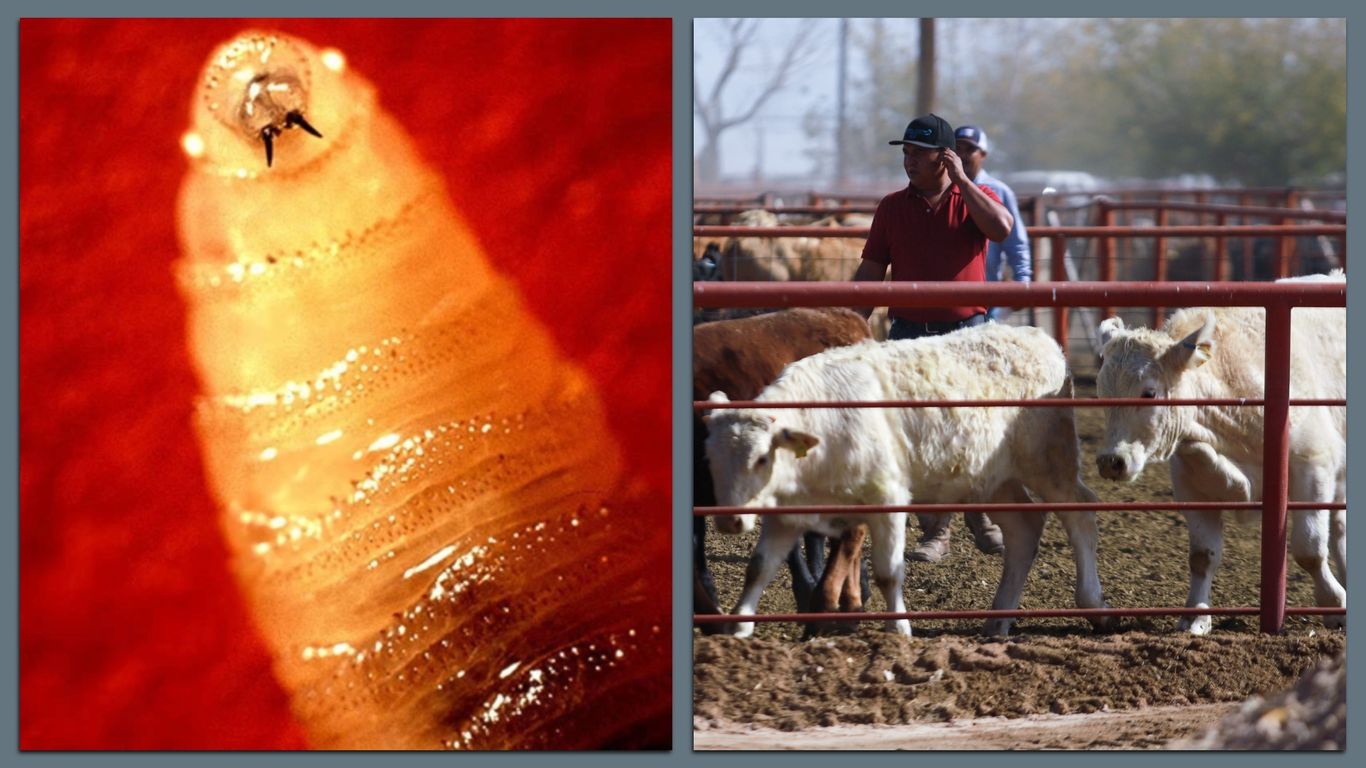
""U.S. Department of Agriculture noted in a statement announcing the suspension of animal imports at the southern border that these maggots "burrow into the flesh of a living animal, they cause serious, often deadly damage to the animal" that can, "in rare cases," include people.""
""Myiasis is a parasitic infestation of fly larvae (maggots) in human tissue," per an online CDC post. "New World screwworm (NWS) is a species of parasitic flies that can cause myiasis and feed on live tissue. "It primarily affects livestock, but it can also infest people.""
""U.S. Department of Agriculture officials used "a biological control technique (sterilized insects) to eradicate NWS fly populations" in the U.S. in 1966 and "eliminated a small outbreak from the Florida Keys in 2017," per a USDA online post.""
New World screwworm (NWS) flies lay larvae that burrow into living tissue and cause myiasis, which can inflict serious, often deadly damage to animals and can, in rare cases, infect people. NWS typically occurs in South America and the Caribbean but has prompted intensified U.S. prevention after recent cases in Mexico. Measures include suspending animal imports at the southern border and a project to breed and sterilize billions of flies for airdrop control. Health officials investigated a confirmed travel-associated NWS case in a patient returning from Central America. The USDA previously eradicated NWS in the U.S. using sterilized-insect techniques in 1966 and controlled a 2017 Florida Keys outbreak.
Read at Axios
Unable to calculate read time
Collection
[
|
...
]